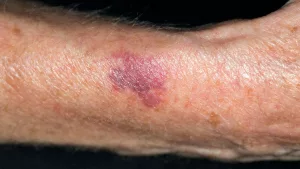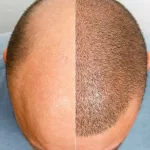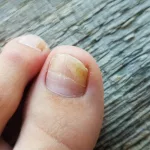Hey there, friend. Imagine you’re feeling constantly tired, gaining a few extra pounds without trying, and your skin is suddenly dry as a desert. You might chalk it up to “just getting older” or “a busy life,” but what if those clues are actually your thyroid waving a red flag? That’s what untreated hypothyroidism looks like—a silent drift that can turn a manageable issue into a cascade of health problems.
In the next few minutes, I’ll walk you through the first signs you’ll notice, the serious complications that can develop if those signs are ignored, and exactly what you can do right now to protect yourself. Think of it as a friendly chat over coffee—no jargon, no scare tactics, just clear, caring information you can act on.
Why Read This?
What are the first warning signs of untreated hypothyroidism?
Common early symptoms that show up first
Most people start noticing a handful of subtle changes that many dismiss as “normal.” Here’s the quick list:
- Persistent fatigue that no amount of caffeine seems to shake off
- Unexplained weight gain, especially around the midsection
- Constipation, dry skin, and hair that feels brittle
- Cold intolerance—feeling chilly when everyone else is comfortable
- Brain fog or “mental fog” that makes simple tasks feel heavy
These clues often appear together, and that clustering is what tells your body something’s off. According to Everyday Health, the thyroid’s decline is gradual, so the symptoms can feel “normal” for months before you connect the dots.
Why do these symptoms feel “normal” at first?
How the body adapts and why we overlook them
Think of your thyroid like a dimmer switch that slowly slides down. The body gets used to the lower light, so you don’t notice the darkness right away. Many of us blame a hectic schedule, stress, or aging, and end up ignoring the warning signs.
When should I get my thyroid labs checked?
Practical timing for testing
Any persistence of the symptoms above for more than four weeks deserves a blood draw. It’s also smart to test before starting a new diet, when you’re planning pregnancy, or if you’re over 60—those life moments can shift hormone needs.
How can I differentiate hypothyroid fatigue from ordinary tiredness?
Quick self‑check tips
- Do you feel colder than friends in the same room?
- Is there a combo of fatigue + dry skin + weight gain?
- Do you have a “heavy” feeling in your arms and legs even after light activity?
If you answer “yes” to most, schedule a thyroid panel (TSH and free T4). It’s a simple step that can change everything.
Early Warning Signs
What are the most common hypothyroidism symptoms that show up first?
Detailed look at each symptom
Let’s unpack each sign so you can spot it in yourself or a loved one:
- Fatigue & brain fog: Your cells aren’t getting enough thyroid hormone to convert food into energy, so you feel sluggish.
- Weight gain: A slower metabolism means calories stick around longer.
- Constipation: The digestive tract slows, leading to occasional “stuck” feelings.
- Dry skin & hair loss: Thyroid hormones help keep skin cells moist and hair follicles active.
- Cold intolerance: Your internal thermostat drops, making you reach for sweaters.
Why do many people think these signs are “just getting older”?
Psychological and cultural factors
Our culture celebrates hustle, so admitting to fatigue can feel like admitting defeat. Plus, menopause, stress, and lifestyle changes all share similar symptoms, muddying the diagnostic water.
What should I do the moment I suspect hypothyroidism?
Step‑by‑step immediate actions
- Write down every symptom you’ve noticed (date, severity).
- Book an appointment with your primary‑care provider and request a thyroid panel.
- Bring this article (or a printed copy) to show you’ve done the homework.
- Ask about possible causes (Hashimoto’s, iodine deficiency, medication side‑effects).
Serious Health Risks
| Complication | What Happens | Why It’s Dangerous |
|---|---|---|
| Heart problems & high cholesterol | Low thyroid hormone raises LDL (bad cholesterol) and can cause atherosclerosis. | Increases risk of heart attacks and strokes. |
| Goitre (enlarged thyroid) | Persistent TSH stimulation makes the gland swell. | Can cause a visible neck lump, breathing or swallowing issues. |
| Myxoedema coma | Severe hormone deficiency leads to hypothermia, confusion, respiratory failure. | Life‑threatening emergency requiring IV thyroid hormone. |
| Pregnancy complications | Higher rates of miscarriage, pre‑eclampsia, low birth‑weight, and baby’s neuro‑developmental delays. | Can affect both mother’s and child’s health long term. |
| Infertility & menstrual irregularities | Thyroid hormones regulate estrogen and progesterone production. | Difficulty conceiving and irregular cycles. |
| Mental‑health decline | Depression, slowed cognition, peripheral neuropathy. | Reduces quality of life and can worsen other conditions. |
| Bone health & myopathy | Reduced metabolism leads to bone loss and muscle weakness. | Increases fracture risk and limits mobility. |
Heart problems & high cholesterol
How low thyroid hormones raise LDL
Your liver’s ability to clear “bad” cholesterol depends on thyroid hormone. When that hormone drops, LDL piles up, narrowing arteries. The NHS warns this can speed up heart disease, especially if you already have other risk factors.
Goitre (enlarged thyroid)
Why the gland swells
When TSH (thyroid‑stimulating hormone) stays high because the thyroid isn’t producing enough hormone, the gland works overtime and grows. Dr. Hagmeyer explains that a goitre is a visual sign that your body is begging for help here.
Myxoedema coma
When the body shuts down
In the rarest scenario, hormone levels become so low that the brain can’t regulate temperature or breathing. This is a medical emergency—IV thyroid hormone, warming measures, and sometimes steroids are required. The NHS outlines the urgency.
Pregnancy complications
Impact on mother and baby
Thyroid hormone is crucial for fetal brain development. Untreated maternal hypothyroidism triples the risk of miscarriage and can cause pre‑eclampsia, low birth‑weight, and developmental delays in the child. Again, the NHS provides a thorough rundown.
Mental‑health decline
Depression, cognition, and nerves
Low thyroid hormone slows neurotransmitter activity, leading to a foggy mood and even peripheral neuropathy (tingling in hands and feet). MedicineNet notes these mental‑health effects can be very pronounced if the condition is left unaddressed here.
Effective Treatment Options
What is the standard treatment for hypothyroidism?
Levothyroxine and dose titration
The gold‑standard is levothyroxine, a synthetic version of T4. It’s taken once daily, usually on an empty stomach, and the dose is adjusted until your TSH lands in the target range (typically 0.4‑4.0 mIU/L). Most people feel a noticeable lift in energy within a few weeks, though full metabolic balance can take several months.
How quickly do symptoms improve after starting medication?
Timeline of relief
Nearly 70 % of patients report better energy and mood within 2‑4 weeks. Cholesterol levels often improve within 3‑6 months, and weight gain stabilizes after 6‑12 months if diet and activity are supportive.
What are the risks of self‑adjusting the dose?
Over‑ vs. under‑replacement dangers
Going too high can cause heart‑rhythm problems (especially in older adults) and bone loss, while staying too low leaves you stuck with fatigue, weight gain, and the complications we just covered. That’s why regular labs every 6‑12 months are essential.
Are there alternative or adjunct therapies?
Dietary, supplemental, and lifestyle support
- Iodine: Only needed if you’re deficient (rare in developed countries).
- Selenium & Vitamin D: Helpful for those with autoimmune Hashimoto’s.
- Regular exercise: Boosts metabolism and improves mood.
- Stress‑management: Chronic stress can blunt thyroid hormone action.
When is specialist referral needed?
Red flags for endocrinology
If you’re pregnant, have persistent high TSH despite dose adjustments, or notice unexplained cardiac symptoms, an endocrinologist can fine‑tune treatment and look for co‑existing disorders.
Real Life Stories
Case Study 1 – “The Silent Weight‑Gain”
How ignored symptoms became a health turnaround
Jane, 42, chalked a 30‑lb weight gain and constant fatigue on “busy work life.” After a routine check‑up, a TSH of 7.2 mIU/L revealed untreated hypothyroidism. Starting levothyroxine, her energy rebounded in a month and her LDL fell by 30 %. She says, “I finally stopped blaming myself and got help—my life feels normal again.”
Case Study 2 – “Pregnancy Scare”
Why early diagnosis matters for family planning
Emily, 28, experienced two miscarriages before a thyroid test caught a TSH of 9.1 mIU/L. After treatment, she conceived and delivered a healthy baby. She tells other women, “Don’t wait for the ‘perfect time’—ask your doctor to check your thyroid if you’re trying to get pregnant.”
Case Study 3 – “Myxoedema Near‑Miss”
Life‑threatening emergency and swift recovery
Robert, 67, was admitted to the ER with a temperature of 93 °F, confusion, and severe lethargy. Lab work showed TSH > 100 mIU/L. He received intravenous levothyroxine and warmed IV fluids, and within 24 hours his temperature rose and consciousness cleared. He now follows a strict medication schedule and regular labs.
Take Action Today
Simple checklist you can use right now
Step‑by‑step guide to protect your health
- Schedule a thyroid panel (TSH, free T4, antibodies if possible).
- Write down any of the symptoms listed above—this helps your doctor see the pattern.
- If you’re pregnant, trying to conceive, or over 60, mention this first; it may change the target TSH range.
- Discuss levothyroxine or other options with your provider; don’t self‑medicate.
- Set a calendar reminder for follow‑up labs (every 6‑12 months or after any dose change).
- Adopt supportive habits: balanced iodine‑rich foods, regular movement, stress‑reduction practices.
Feel free to download a printable version of this checklist—just click “Save as PDF” from your browser. Having it on the fridge can keep you motivated.
How to stay on top of your thyroid health long term?
Tips for ongoing monitoring and motivation
- Keep a symptom journal; note any new changes.
- Pair medication with a regular meal schedule (same time each day).
- Ask your doctor about recent guidelines (the American Thyroid Association updated its recommendations in 2024).
- Stay informed—trusted health sites like Medical News Today regularly publish updates.
Trusted Source List
All the facts in this article come from reputable, peer‑reviewed or government‑backed sources, ensuring you get accurate, up‑to‑date information:
- Medical News Today – “Untreated hypothyroidism: Effects and more.”
- Everyday Health – “What Happens If Hypothyroidism Is Left Untreated?”
- NHS – “Complications – Underactive thyroid.”
- GoodRx – “What Happens If You Leave Hypothyroidism Untreated?”
- EndocrineWeb – “Complications of Hypothyroidism.”
- PubMed – Clinical Manifestations of Severe Untreated Hypothyroidism (2022).
Remember, knowledge is power—but action turns that power into health. If any of the signs above feel familiar, don’t wait. Grab that appointment, get tested, and give your thyroid the care it deserves. Your future self will thank you.

























Leave a Reply
You must be logged in to post a comment.